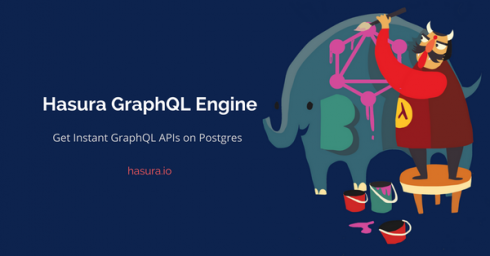
With its open source release this week, GraphQL-as-a-Service company Hasura’s GraphQL Engine is looking to lift the burden on front-end and enterprise application developers who want to begin incorporating GraphQL’s data querying and manipulation capabilities in their preexisting Postgres-based applications without having to dig through the back-end of GraphQL’s code to implement it.
”GraphQL and the tooling around it dramatically increases the feature velocity for developer teams by reducing the communication required between them while developing new features,” the company wrote in this week’s announcement. “As a result, GraphQL servers are like self-documenting APIs that enable full API discoverability for the developers. This enables the front-end developers to make API requests, in order to introduce new features or change existing ones, in GraphQL without having to wait for back-end developer teams to deliver APIs and document the changes.”
The company explained that Hasura can handle the bulk of the work involved with incorporating GraphQL in existing projects with features like:
- Instant GraphQL APIs on existing databases: The Hasura GraphQL Engine allows one to start querying an existing Postgres database instantly with GraphQL. Developers can choose the tables from their new or existing database that they want to use GraphQL with and link those existing tables into a “graph.” This gives companies already using Postgres an easy, incremental way to start moving over to GraphQL, Hasura explained.
- High performance dollar-for-dollar: Unlike others, Hasura said its solution is an extremely lightweight engine that consumes only 50MB of RAM even while serving more than ~1000 requests/per second, delivering matchless ROI.
- Built-in authorization and authentication: Hasura’s GraphQL Engine comes with a granular, dynamic access control system that integrates with existing authentication systems such as Auth0 or custom implementations. This further aids in the incremental journey toward adding GraphQL to a company’s existing applications. The Hasura engine enables developers to define who can access what data (admin, anonymous users, etc.).
“We’re thrilled to open source Hasura’s GraphQL Engine to further ease the adoption of GraphQL,” Tanmai Gopal, co-founder and CEO of Hasura, said in the announcement. “Dollar-for-dollar no other solution comes close to matching Hasura’s phenomenally high performance. The GraphQL community can harness our lightweight GraphQL-as-a-Service engine and turbocharge any of their new or existing Postgres applications. Concurrently, for enterprises using Postgres, they can make a smooth, rapid transition over to GraphQL. Postgres is the first along a roadmap of other leading databases that Hasura intends to support in the future.”






